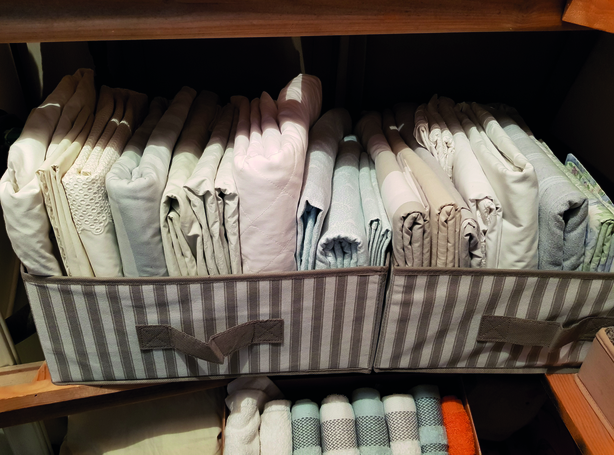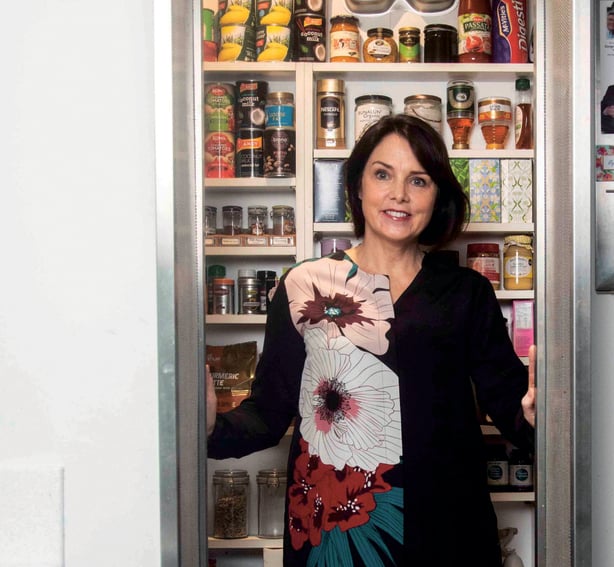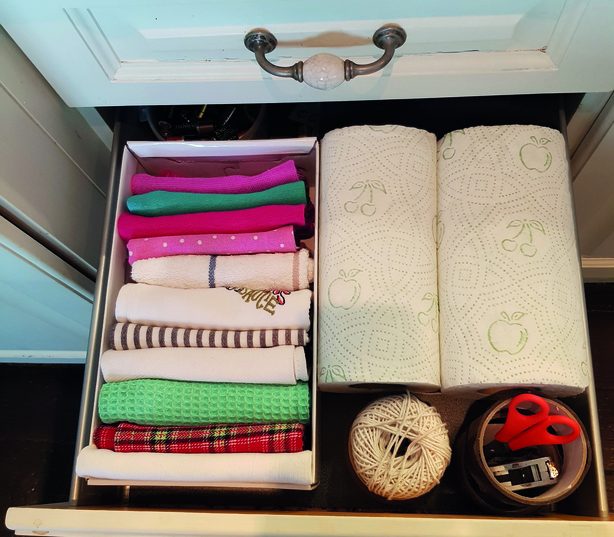Decluttering is good for the soul, but how best to approach it? Claire O'Mahony speaks to decluttering experts, Vera Keohane and Sarah Reynolds.
Even a little clutter can spoil your day, from the exasperating hunt for keys to the fear when an important document can’t be located. But a chaotic environment can cause more damage than just being frustrating.
Scientific evidence suggests that clutter’s negative impacts include increasing the stress hormone cortisol and decreasing focus and productivity. Clutter can make us feel anxious, distracted, guilty and on edge. According to a 2016 Australian-US study, it can even lead to unhealthy eating with participants in a messy kitchen more likely to choose sugar-rich food.
However strong the appeal of living in a more organised home might be, the majority of us find the act of decluttering very difficult. When will I find the time? Where to even start? What to keep? What if I throw something out that I need someday?

"Not everyone has the ability to motivate themselves to declutter and organise their home, especially now with us all grappling with the pandemic, as well as everything else," says Kinsale-based professional organiser Vera Keohane, who trained with Japanese tidying guru Marie Kondo. Keohane’s business Enjoy Your Home helps clients transform their homes by applying the KonMari method to create a clutter-free space that paves the way for a life that "sparks joy", Kondo’s signature phrase.
"People can become overwhelmed and stuck for many reasons. It's a vicious cycle and anxiety, stress, illness, break-ups, birth, deaths and commitments can lead to a chaotic home, and a chaotic home can lead to more anxiety, stress and depression and we tend to care less about the house which compounds the problem," she says.
Any room can become cluttered, with Keohane singling out playrooms as often being particularly disordered as well as hallways and utility rooms. "In my experience, the areas of the home that are most prone to clutter are spaces that have not been given a purpose, and where the items in that space do not belong anywhere else," she notes.

If you’re feeling swamped by it all, the professional organiser says to start small. "It could even be your handbag. Empty it out and put back into it exactly what you need and that will give you such pleasure when you open it the next time. Another great place to start is the car. Check the glove compartment and boot and what’s in it and give it a good clear out."
The bedside locker is another area where a tidy-out can give maximum returns. "They become a dumping ground for used books, hand creams, water glasses, broken alarm clocks, wires and more," says Keohane.
"Interestingly, I have received a lot of positive feedback from clients about the impact that their transformed bedside lockers have had on their day-to-day life. They now look forward to going to bed, able to easily put their hand on a favourite book or light a candle, and don’t have to worry about navigating towers of clutter that really weren’t serving any purpose in the first place. They couldn’t believe how this small change could have such a positive impact on their night’s sleep, and also helped them to start each morning on a positive note."
According to Sarah Reynolds, the founder of home and business organisation service Organised Chaos if the thought of decluttering is filling you with dread, your mood will improve after you tackle the job. "It’s like when you go out and exercise. You don’t want to do it but once you do, you just feel much better within yourself. You feel motivated and you see a bit of progress." Reynolds advises to firstly look at your schedule before embarking on a giant clear-out session.
"If you’ve got quite a lot to do, and even if you don’t, this requires time out as well as a certain amount of discipline. To get organized, we need to organise ourselves and ask when am I going to do this and can I do a little bit regularly."

She suggests that decluttering surface areas can be a rewarding place to begin with. "Your dining room table, your desk, your mantelpiece, your windowsill - they can give quick wins and they can immediately calm your brain because the surfaces really play on our brains."
When it comes to choosing the first room to start with, Reynolds proposes the bedroom. "It’s an important room for looking after ourselves, our well-being and our relationships and it would be nice if this room was decluttered and decorated the way you like it and a beautiful room in which to relax."
Apart from the obvious advantages of streamlining your space, the process may also serve to rein in your spending. We’re often said to be suffering from 'stuffocation’, the feeling of being weighed down by having too much stuff. "When we start to declutter, we just realise how much we don’t use, how much space it’s taking up, the effect that has on ourselves, and on the relationships within the house and on our bank balance," states Reynolds.
Keohane points out that in the average room, there are about 2,000 items that you can see and that this is visually stressful. "It’s really about having less stuff," she says, and adds that the KonMari method has changed her whole way of thinking about shopping. "I have become a ruthless editor of what I now allow into our home. I buy a lot less than I used to but buy good quality over quantity. I have made huge savings even in my weekly grocery shopping and this is because my whole mindset has changed. Buying on impulse is a thing of the past."
Decluttering know-how
Set a deadline
According to Sarah Reynolds, a deadline will make you focus better because you know you have to work within a certain timeframe. "Also make sure that within the time limit you’re giving yourself a bit of tidy-up time because, with decluttering, unfortunately it gets worse before it gets better," she says. "When we have decluttered the kitchen or the wardrobe, we need to factor in making the bed or wiping down the counters or put the bags out to charity."
Do one small thing every day
Keohane says that straightening out the physical aspects of our lives can bring mental clarity. "I would encourage everyone to just do a small task each day for their own benefit. A simple gesture like displaying flowers in a vase, clearing a windowsill, or lighting a scented candle can lift your mood instantly."
Don’t zig-zag
When you start decluttering, you’ll almost certainly find items that belong in a different room, but it’s advisable not to start redeploying these things immediately, says Reynolds. "Always set up a ‘belongs elsewhere’ pile in the door of the room you’re working on," she advises. "Stay where you’re working and don’t move until it’s done. Then at the end of your tidy-up time, you redistribute everything out around the house. It’s just more effective and efficient and it helps your motivation."
Sentiment has its place
Decluttering doesn’t mean you have to throw out old love letters or 20-year-old concert tickets but Keohane says these must be assessed in order to decide what to do with them. "When you’re doing the KonMari method, you’re asking yourself what they mean to you." Keep them by all means if they are important to you but, she advises not to store them in a box in the attic. "They’re no good to anyone there. For postcards or photos, put them on display so you can see them, but as far putting stuff away in a box, that’s not giving anyone any joy."


